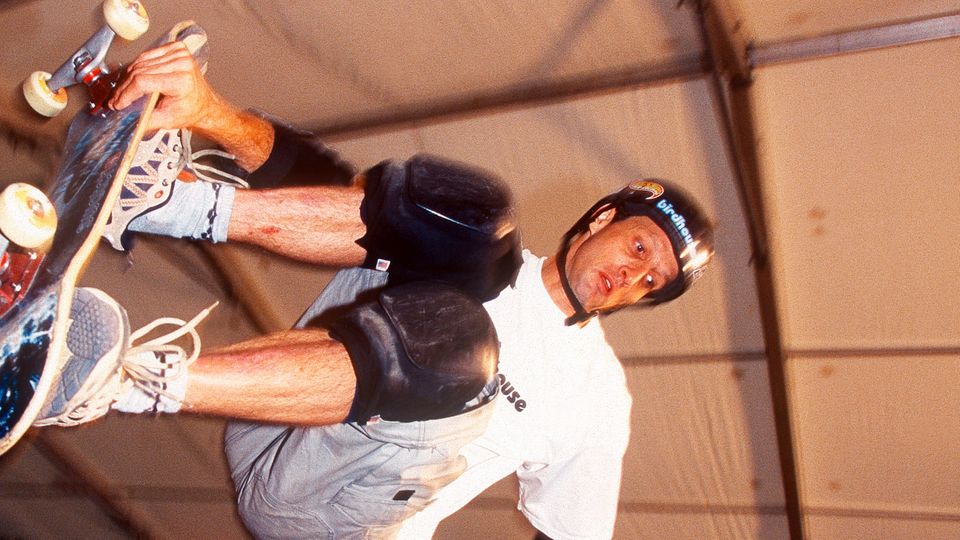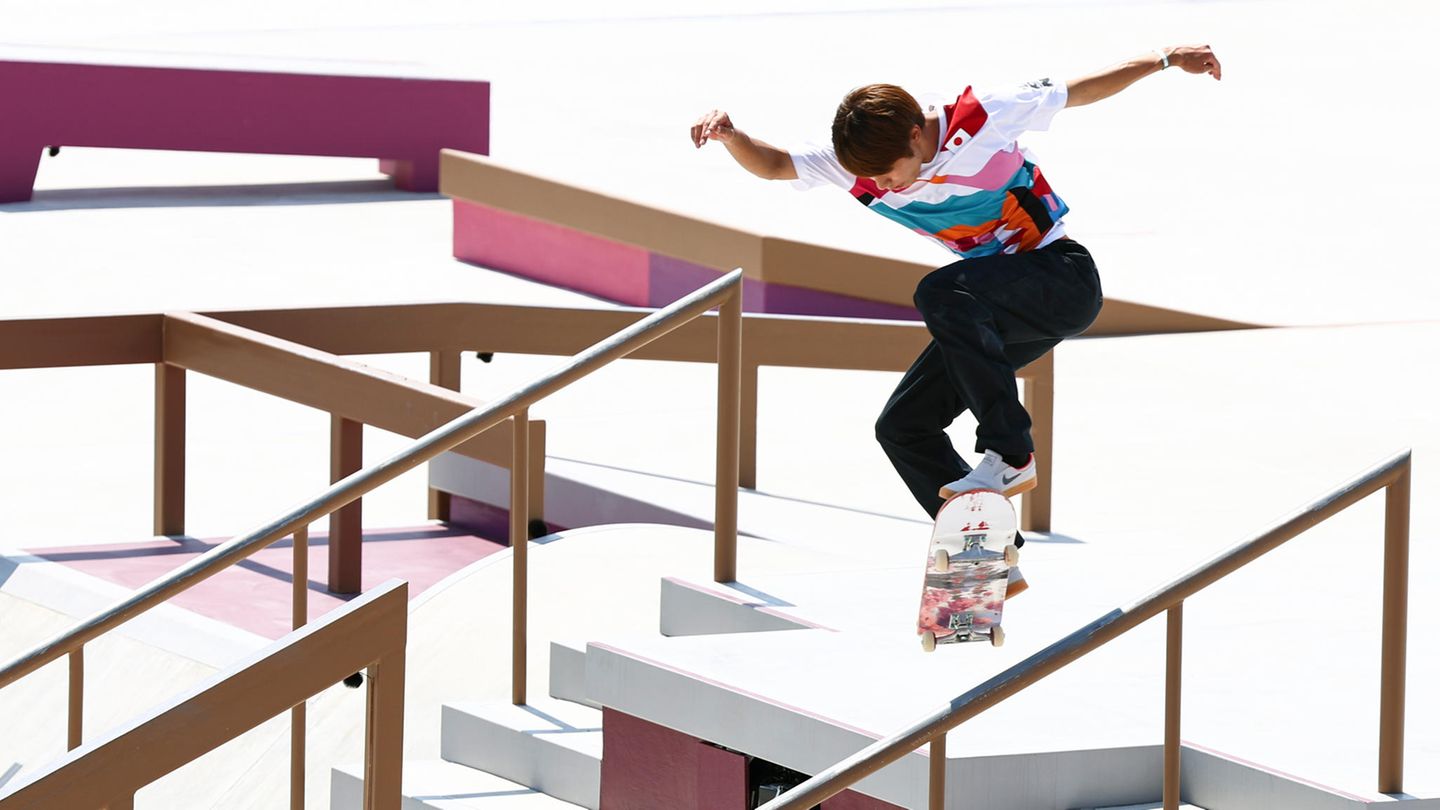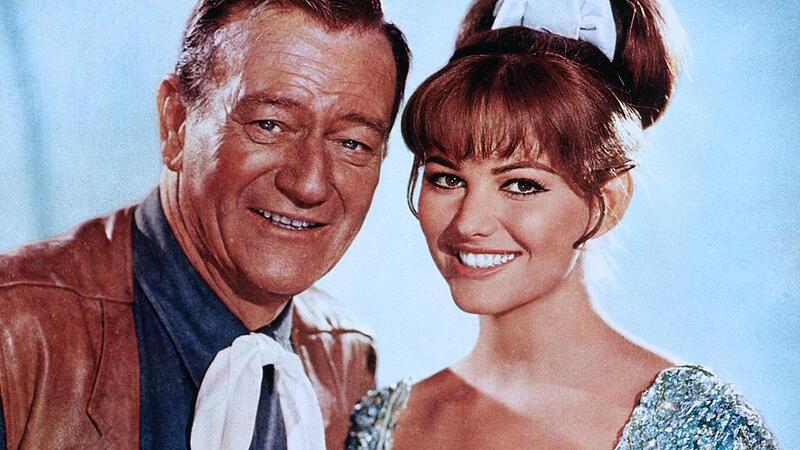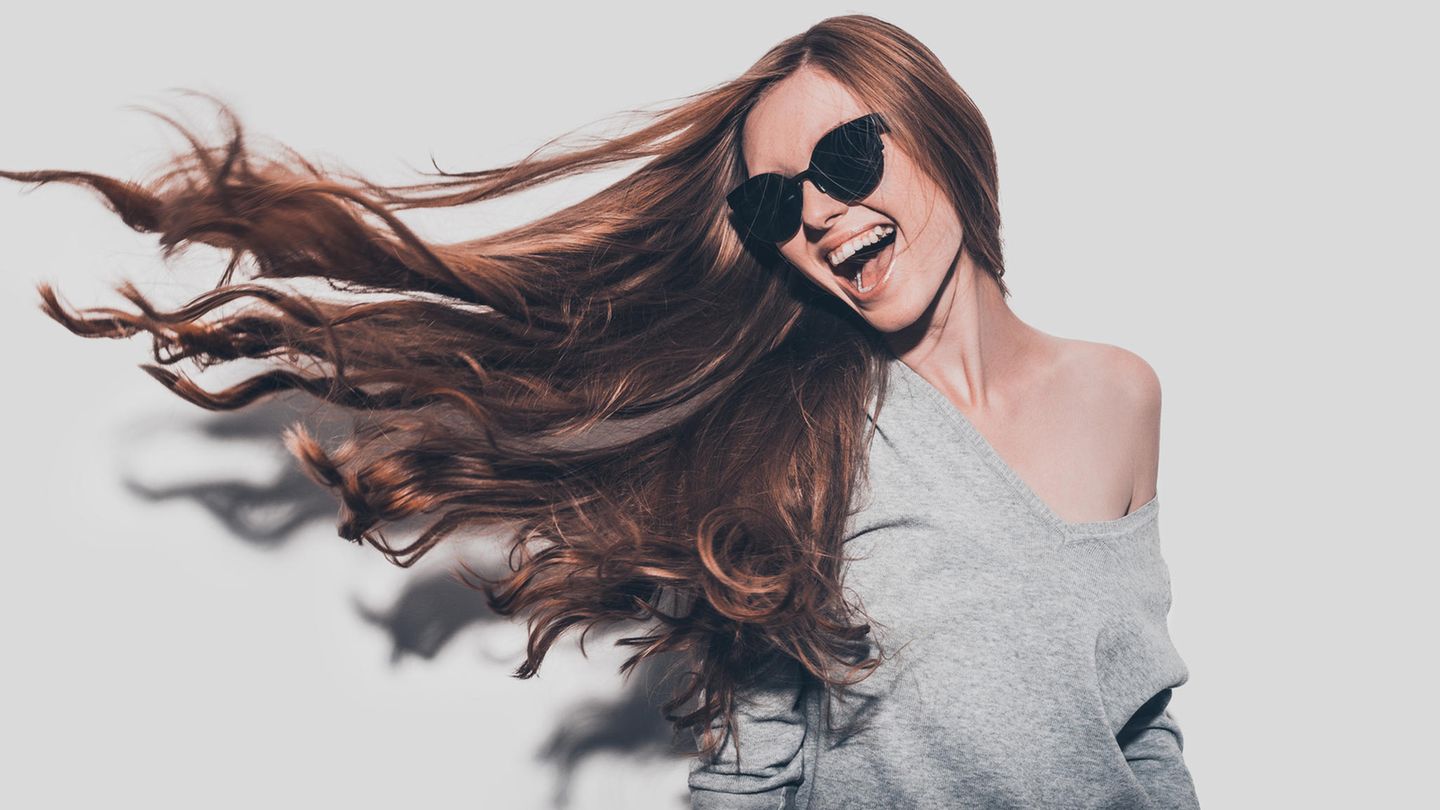The makers of Olympia are looking for new impulses, more action and a youthful spirit. Let the skateboarders and surfers judge it. The Olympic premiere of the two trend sports did not disappoint.
Completely new tones at the Olympics. Punk rock and independent sounded from the loudspeakers, while the skateboarders jumped and tricked their way over stairs, obstacles and railings in cool caps and sometimes very low-slung pants. What was on offer around the facility in the Ariake Sports Park in the intense heat certainly seemed strange to Olympic traditionalists – but promising to the young target group.
The fact that a Japanese man also won gold at the Olympic premiere in the trend sport in his native city of Tokyo refined the spectacular and atmospheric Sunday. As cool as the 22-year-old Yuto Horigome was with his jumps and tricks, he appeared composed or even nervous during the first interviews with the winners. “I’m so happy that I just succeeded here. My parents’ house is 20 minutes away,” said Horigome, who has lived in Los Angeles since 2016, after a few seconds of hesitation. Immediately after his coup, he put a Japanese flag around his shoulders, and at the award ceremony he proudly held the gold plaque in front of his chest.
Almost anything is allowed
We are familiar with such images from the Olympics – but others were new: some of the athletes had wireless headphones in their ears, almost all of them wore headbands or baseball caps, the latter preferably with the peak facing back. There is no dress code for skateboarding. Short shorts, wide shorts, long trousers, colorful muscle shirts, but also a freshly starched and ironed white shirt with a closed top button for the French starter Vincent Milou – (almost) everything is allowed in this trend sport.
Horigome had ridden better than any of his competitors through the course, which was set up for the first time in an Olympic city for the Tokyo Games. The Germans Tyler Edtmayer and 14-year-old Lilly Stoephasius will only compete in the other skateboard discipline, the park, on August 4th (women) and August 5th (men). After two runs of 45 seconds each and tricks on stairs, railings, concrete benches or ramps, Horigome prevailed in the final ahead of the Brazilian Kelvin Hoefler (silver) and Jagger Eaton from the USA (bronze). The top star in the industry, the American Nyjah Huston, only came in seventh. “I want to show the medal to everyone who has supported me and my family,” said the young man, who drove in long black sweatpants and a white T-shirt.

Gone with the rebel image?
The organizers of the International Olympic Committee hope that the new disciplines such as skateboarding, surfing or climbing will bring action-packed images and that their representatives, who are often young or at least so, will inspire even more young people for the Olympics. In surfing, the only German starter Leon Glatzer was eliminated on Sunday and missed the final. IOC sports director Kit McConnell said about skateboarding: “This is a very important part for the further development of the games. Our goal is to bring the sport to the people bring not just people to sport. “
“Skateboarding at the Olympics is just something different, it’s on TV, a great event,” enthused Horigome. And he reassured critics who fear for the rebellious freedom-loving image of their sport. “Skateboarding is not just Olympics or competition,” he said. “I also continue to skate on the street.”
I have been working in the news industry for over 6 years, first as a reporter and now as an editor. I have covered politics extensively, and my work has appeared in major newspapers and online news outlets around the world. In addition to my writing, I also contribute regularly to 24 Hours World.




